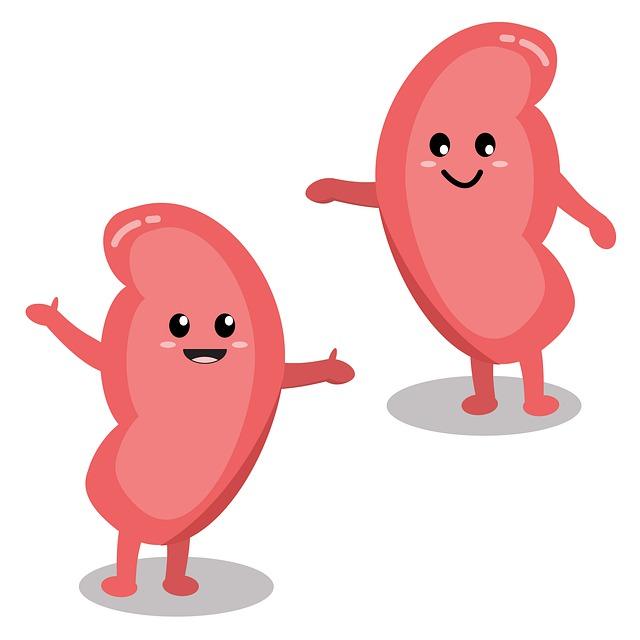
Autosomal dominant polycystic kidney disease (ADPKD) is a genetic disorder characterized by the growth of numerous cysts in the kidneys. This condition can lead to kidney failure and other serious complications. It is important to be aware of the symptoms of ADPKD in order to seek timely medical intervention and management.
In this article, we will discuss the common symptoms of ADPKD and provide insights into how the condition impacts the affected individuals.
1. Abdominal Pain
One of the most common symptoms of ADPKD is persistent or recurrent abdominal pain. The growth of cysts in the kidneys can cause pressure and discomfort in the abdominal area. The pain may vary in intensity and can be accompanied by other symptoms such as nausea and vomiting.
If you experience unexplained abdominal pain, especially if it is severe or persistent, it is important to consult a healthcare professional for an accurate diagnosis and appropriate management.
2. Hypertension
ADPKD can lead to the development of high blood pressure, also known as hypertension. The presence of cysts in the kidneys can disrupt their function, leading to an imbalance in the regulation of blood pressure. Hypertension can further exacerbate the progression of kidney damage and should be closely monitored and managed in individuals with ADPKD.
Regular blood pressure monitoring and appropriate medical treatment are essential to control hypertension and minimize its impact on kidney function.
3. Hematuria
Hematuria, or the presence of blood in the urine, is another common symptom of ADPKD. The presence of cysts in the kidneys can cause the blood vessels within the organ to rupture, leading to blood in the urine. Hematuria can be visible to the naked eye or detected through microscopic urine analysis.
If you notice blood in your urine, it is important to seek medical attention to identify the underlying cause and receive appropriate treatment.
4. Urinary Tract Infections
Individuals with ADPKD are at an increased risk of developing urinary tract infections (UTIs) due to the presence of cysts in the kidneys. UTIs can cause symptoms such as frequent urination, pain or burning during urination, and a strong urge to urinate.
It is important to promptly treat UTIs to prevent complications and minimize the impact on kidney function.
5. Kidney Stones
The presence of cysts in the kidneys can lead to the formation of kidney stones in individuals with ADPKD. Kidney stones can cause severe pain in the back or side, difficulty urinating, and blood in the urine. The presence of kidney stones can also increase the risk of urinary tract infections.
If you experience symptoms of kidney stones, it is crucial to seek medical evaluation and appropriate management to prevent complications.
6. Liver Cysts
In addition to affecting the kidneys, ADPKD can also lead to the development of cysts in the liver. Liver cysts may not cause symptoms in some individuals, but in others, they can lead to pain, discomfort, and complications such as liver enlargement and obstruction of bile ducts.
Regular monitoring and management of liver cysts are important to prevent complications and ensure optimal liver function.
7. Brain Aneurysms
ADPKD can increase the risk of developing brain aneurysms, which are bulges in the blood vessels in the brain. Aneurysms can sometimes cause symptoms such as severe headaches, vision changes, and neurological deficits. In some cases, aneurysms can rupture, leading to a life-threatening condition known as a hemorrhagic stroke.
Individuals with ADPKD may undergo screening for brain aneurysms to detect and manage them proactively, reducing the risk of complications.
8. Heart Valve Abnormalities
ADPKD can impact the structure and function of the heart valves, leading to abnormalities such as valve prolapse or regurgitation. Heart valve abnormalities can cause symptoms such as chest pain, fatigue, and shortness of breath. In some cases, they may require medical or surgical intervention to prevent complications.
Regular cardiac evaluation and monitoring are important for individuals with ADPKD to identify and manage heart valve abnormalities effectively.
9. Aneurysms in Other Organs
In addition to brain aneurysms, individuals with ADPKD may be at an increased risk of developing aneurysms in other organs such as the spleen or intestines. Aneurysms in these organs can cause symptoms such as pain, tenderness, and a pulsating mass in the abdomen.
Early detection and management of aneurysms in other organs are crucial to prevent potential complications and ensure optimal organ function.
10. Decreased Kidney Function
As ADPKD progresses, the growth of cysts in the kidneys can lead to a gradual decline in kidney function. This can result in symptoms such as fatigue, weakness, fluid retention, and anemia. In advanced stages, decreased kidney function may necessitate treatment options such as dialysis or kidney transplantation.
Regular monitoring of kidney function through blood tests and other diagnostic procedures is essential for individuals with ADPKD to intervene early and optimize management strategies.

















